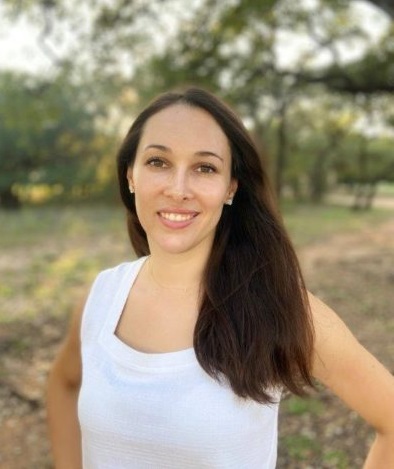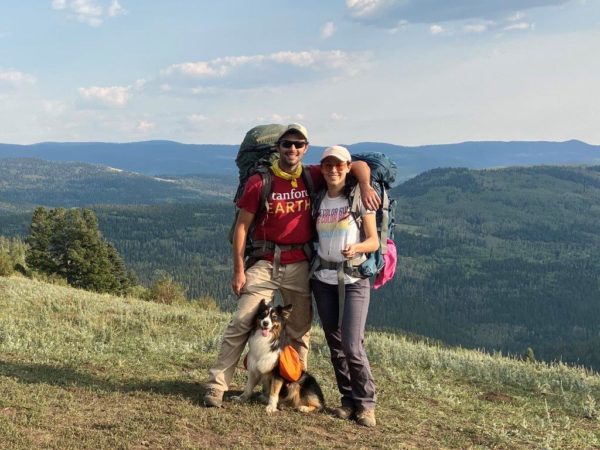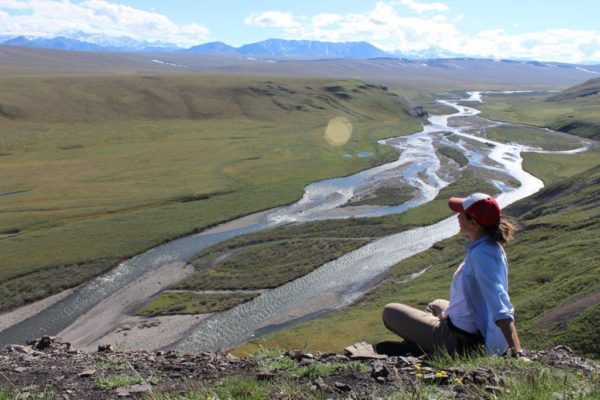
– Inessa, where did you study and work before moving to Texas?
I went to high school in the Krasnodar Oblast’, Russia, then I won a scholarship to Lomonosov Moscow State University where I got my bachelor’s. I got my master’s degree at the University of Nevada, Las Vegas and then went to the Stanford graduate school in California. All my degrees were in Geology and Earth Sciences. I was at Stanford for six years, five years for my PhD (PhD), and another year for my PostDoc.
– Was moving to Austin a choice or a coincidence?
They say that there are no coincidences in life. My research supervisor at Stanford received a letter saying that the University of Texas at Austin was looking for an oil system modeling researcher (one of my areas of expertise). At the time, I was just starting my postdoctoral studies at Stanford and was not looking for work at other universities, nevertheless I applied to the University of Texas at Austin just in case, following my supervisor’s advice. As a result, UT flied me in for an interview and later offered me a permanent position. The decision did not come easy, but I made it together with my husband (then my husband-to-be), who happens to be originally from Texas (San Antonio).
– What do you like most about Austin?
Before moving to Austin, I did two long internships in Houston, and I thought the whole of Texas was like Houston. We have been in Austin for two years now, and I fell in love with the Texas Hill Country. I like it that Austin has a large university, a lot of interesting people, and there is a Russian Cultural Center and a Russian School. The climate here is, in my opinion, the best in Texas. Another good factor is that my husband has a big family here (almost 20 people), and almost as big in San Antonio. Thanks to moving to Austin, I was able to get to know them better and learn about their Texas traditions.
– Are you keeping in touch with your home country? Do you miss any aspect of life back home?
I have been living in the US for 10 years now, but I have been keeping up with my connections with Russia. All of my family and friends are there. I really love coming to Russia in summer, staying in Moscow for a few days, visiting my Alma Mater, walking around my favorite places, meeting with my old university friends, watching our capital grow and change. But most of all I love to visit my parents by the Black Sea. Even when I lived in California near the majestic (although cold) Pacific Ocean, I missed my warm sea and warm summer evenings in the family circle.

– What traditions and habits from your pre-Texas life have you kept?
This is an interesting question. Do you mean pre-Texas or pre-American? It’s hard to say. My husband and his family really like everything Russian, so I have no problem keeping those traditions going. We celebrate the New Year, Christmas, the International Women’s Day, the First of May, and sometimes the Russian Orthodox Mardi Gras. When it comes to the Russian cuisine, our Texas family really likes the Russian (Olivier) salad, chicken tabaka, beet salad, Napoleon cake, and we enjoy cooking it for the American holidays.
– What do you do outside your work? What are your interests and hobbies?
I think I can answer both of these questions together. Until recently, my work (studies), interests and hobbies were tightly intertwined. This is why I decided to enroll into Geology: I was really enthralled by the announcement about this program. It read: “If you want to learn more about the Earth, about the history of our planet and the processes that shape it, if you like to make discoveries and learn about the unknown, if you enjoy going on adventures and long hiking trips with a backpack and a tent, sitting around a campfire singing along with the guitar, come join us!” Honestly, this is so true about me, I like to travel, go on expeditions and hikes, discover new things. Thanks to geology, I was able not only to visit, but really to get to know about 15 countries and 10 states, and make friends all over the world, that’s what I really like about it. I even went for three months on two expeditions in the Atlantic Ocean and the Mediterranean Sea. These days my main focus is oil and gas geology, this is what brought me to America and Texas in particular. After working as a researcher and a lecturer at UT Austin for a year and a half, I decided that I wanted to try working in a privately-owned company, and now I work at the Technology Center of a large energy company.

– Are you involved with the Russian-speaking community in Austin?
I just recently started reaching out to the Russian community in Austin. And now I am a Science teacher at the Russian School Sputnik!
– What else would you like to tell us about yourself? Do you have a favorite book or a movie?
I am a sociable person and love meeting new interesting people, learning new things, listening to life stories, and traveling in a good company. I prefer to work together with other people and achieve goals together, rather than work on my own. Lately I have been very interested in the issues of climate change and pollution of our planet, the future of energy, and sustainable development in general. It would be great to find like-minded people and share our views on these topics.
It would be difficult to name one favorite book or movie, I have been reading a lot of contemporary literature, science-related and not only. The book Lab Girl (a memoire of a ‘laboratory girl’) comes to mind, it was written by a real female scientist and biogeochemistry professor Hope Jahren, who studies trees, flowers, seeds and soil. This book is about her life, science, long-term friendships, and a fresh perspective on plants that can dramatically change the way we think about nature.
Contact Information:
Inessa Yurchenko, PhD
Earth scientist
LinkedIn: https://www.linkedin.com/in/inessa-yurchenko/
Stanford University: https://bpsm.stanford.edu/inessa-yurchenko
UT Austin: https://www.beg.utexas.edu/node/4329
Google Podcasts: Podcast
Interviewer: Dmitri Ovcharenko
Editor: Olga Adler
Publisher: Russian Cultural Center
